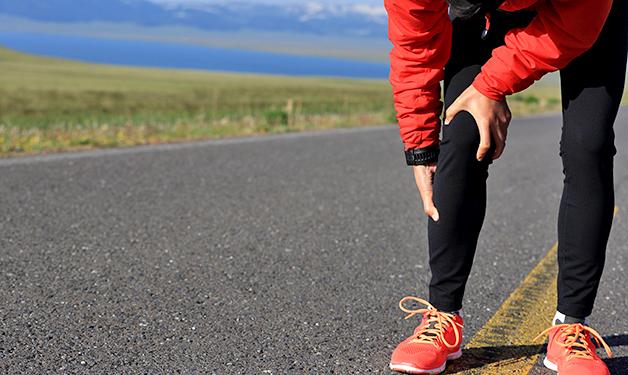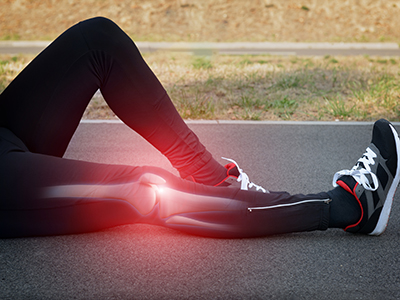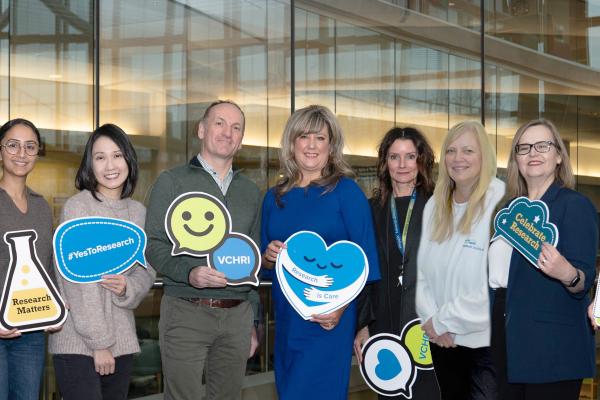
Researchers seek ways to help arthritis patients keep running.
The health benefits of running are well known—but for runners who develop knee joint health osteoarthritis (OA), the picture is less clear. Should you give up running if you get OA? Research scientist Dr. Michael Hunt and his colleagues at the Vancouver Coastal Health Research Institute want to answer that question.
Knee OA is the deterioration of the protective cartilage in knee joints. It causes stiffness and pain and is the most common form of arthritis, affecting about 4.5 million Canadians. Exercise is generally recommended for arthritis patients—but in the case of running and knee OA, more research is needed.

“There is a mistaken belief that running is definitely bad for OA patients, but actually, we don’t have evidence one way or another yet. We can’t say for certain that running is harmless for people with knee OA, but the last thing we want is for someone who enjoys running, and who gets physical and psychological benefits from it, to think they have to stop.” Hunt says that when runners stop exercising, they lose the proven physical and psychological benefits of this form of exercise.

To gather more evidence, and be better equipped to inform their knee OA patients, Hunt and his colleague Dr. Jean-Francois Esculier are embarking on three interconnected studies.
The first study looks at the direct impacts of running on knee cartilage. Two groups of female runners aged 40 plus—one group with OA, the other without—will run for 30 minutes and undergo pre and post-run MRI scans. Esculier says the scans will allow researchers to compare how cartilage is impacted by the running session. “We want to see if our OA patients recover as quickly as the control group. Ultimately, we’d like to be able to conclude whether or not running is safe for them.”
The holy grail of knee OA research would be to find a way to rebuild and renew cartilage. But until then, Esculier and Hunt say it is important to help people manage the condition and ideally slow down its progression. As physical therapists, they bring a movement-based approach to that goal.
"The focus in our research program is to seek out non-surgical and non-drug treatments for joint health. One approach is to teach people to move differently in a way that best protects their joints—improving pain and function."
Finding ways to exercise more safely
With the aim to improve pain and function, the second study will test if modifying the way people run can decrease joint loading and OA symptoms. Esculier says previous gait modification studies have shown increasing step rate improves symptoms in other knee conditions, since shorter steps reduce the forces acting on the joints. In the upcoming study, a group of runners with knee OA will be instructed how to increase their step rate and then monitored for a four-week period to see what effect this has on their running patterns as well as symptoms.
“We want to find ways to help runners keep doing what they love,” says Esculier.

Hunt echoes this goal. “I’m always asked what the best exercise is. The answer is the exercise you will keep doing. Adherence is what matters most. So if you love running, we want to find a way to enable you to keep doing it safely. We don’t want to take it away from you.”
Finally, Hunt and Esculier are conducting a survey of public and professional attitudes about running and joint health. They hope the survey will help them design better clinical guidelines using a patient- and clinician-centred approach.
Participants are currently being recruited for the online survey and for the cartilage study. The gait modification study will begin in January 2018 and interested participants can find more information here.


